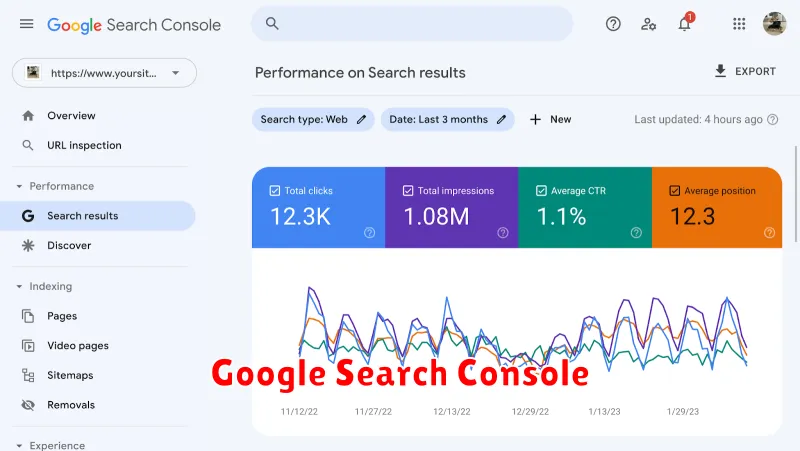In today’s digital landscape, having a strong online presence is crucial for the success of any business, especially small businesses. Search Engine Optimization (SEO) plays a vital role in driving organic traffic to your website and increasing your visibility to potential customers. To achieve optimal SEO results, leveraging the right tools is essential. This article explores the best SEO tools available for small businesses, enabling you to effectively manage your SEO strategy and grow your business online. Understanding and utilizing these tools can significantly impact your search engine rankings, ultimately leading to increased traffic and revenue.
Selecting the most effective SEO tools can feel overwhelming given the wide range of options available. This guide aims to simplify the process by presenting a carefully curated list of the best SEO tools for small businesses, considering both budget and functionality. We’ll examine tools that assist with keyword research, site audits, backlink analysis, and more, empowering you to make informed decisions about which tools will best serve your small business needs. By implementing these tools strategically, you can optimize your website for search engines, attract more customers, and stay ahead of the competition.
Why SEO Tools Are Important
In today’s digital landscape, a strong online presence is crucial for business success, especially for small businesses. Search Engine Optimization (SEO) is the key to achieving this visibility. SEO tools provide the necessary resources to improve your website’s ranking in search engine results pages (SERPs).
These tools offer valuable data and insights into various aspects of your website’s performance, allowing you to identify areas for improvement. They help you understand how your website is performing against competitors and what strategies are working effectively in your industry. By utilizing SEO tools, you can make data-driven decisions to optimize your content, target the right keywords, and ultimately attract more organic traffic.
Increased visibility translates to more potential customers discovering your business. SEO tools streamline the optimization process, saving you valuable time and resources. Instead of manually analyzing data, these tools automate many tasks, providing comprehensive reports and actionable recommendations.
Google Search Console

Google Search Console (GSC) is a free and essential tool provided by Google that helps website owners monitor, maintain, and troubleshoot their site’s presence in Google Search results. It offers invaluable insights into how Google perceives your website and provides actionable data to improve its search performance.
Key Features of Google Search Console:
- Performance Reporting: Track your website’s clicks, impressions, click-through rate (CTR), and average position for specific keywords and pages.
- Index Coverage: Identify and fix indexing issues to ensure Google can crawl and index your website’s content efficiently.
- Mobile Usability: Detect and address mobile usability problems that can negatively impact your site’s ranking on mobile devices.
- Security Issues: Receive alerts about security problems affecting your website, such as malware or hacking attempts.
- Structured Data: Validate and monitor structured data markup to enhance your search results with rich snippets.
By utilizing Google Search Console effectively, small businesses can gain valuable information to optimize their website’s visibility, improve user experience, and ultimately drive more organic traffic.
Ahrefs and SEMrush Comparison
Both Ahrefs and SEMrush are powerful SEO tools offering a wide range of features. Choosing between them often depends on specific needs and budget.
Ahrefs is renowned for its superior backlink analysis capabilities, providing extensive data on backlinks, referring domains, and anchor text. This makes it invaluable for competitive analysis and link building strategies. It also offers strong keyword research and rank tracking features.
SEMrush, while offering robust backlink analysis, boasts a more comprehensive suite of tools encompassing on-page SEO, content marketing, social media management, and paid advertising research. Its keyword research tools are particularly noteworthy, offering extensive data on keyword difficulty, search volume, and related keywords. It also provides a strong site audit tool.
Free Tools vs Paid Tools

When choosing SEO tools, small businesses often face the dilemma of free versus paid options. Cost is a significant factor, especially when starting. Free tools offer a valuable entry point, allowing you to familiarize yourself with SEO fundamentals without financial commitment.
However, functionality is where paid tools often excel. They typically provide more in-depth data, advanced features like keyword rank tracking and competitor analysis, and often include reporting capabilities. These features can be crucial for scaling your SEO efforts and achieving more significant results.
Scalability is another key consideration. As your business grows, free tools may become limiting. Paid tools offer more flexibility and advanced features to accommodate your expanding needs.
Consider your budget, required features, and projected growth when making your decision. A strategic approach might involve starting with free tools and transitioning to paid options as your business expands and your SEO needs evolve.
Keyword and Backlink Tracking
Effective SEO relies heavily on understanding keyword performance and backlink profiles. Tracking these two crucial aspects allows you to optimize your content strategy and improve your website’s authority.
Several tools offer comprehensive keyword and backlink tracking features. These tools allow you to monitor your website’s ranking for targeted keywords, identify competitor keywords, and analyze search volume trends. This data helps inform content creation and keyword optimization strategies.
Backlink tracking reveals which websites are linking to your content. Analyzing this data can identify high-quality backlinks that contribute to domain authority and highlight areas for improvement. Understanding your backlink profile can also uncover potentially harmful backlinks that might negatively impact your website’s search engine ranking.
Technical SEO Audits
Technical SEO audits are crucial for ensuring search engines can effectively crawl and index your website. They identify and address technical issues that may hinder your site’s visibility. These audits evaluate various aspects of your site’s infrastructure.
Key areas covered in a technical SEO audit include:
- Crawlability and Indexability: Checking for broken links, proper use of robots.txt, and XML sitemap optimization.
- Site Speed: Analyzing page load times and identifying bottlenecks.
- Mobile-Friendliness: Evaluating the site’s responsiveness and user experience on mobile devices.
- Site Architecture: Assessing the website’s structure and internal linking.
- Security: Verifying HTTPS implementation and security protocols.
Addressing these technical elements improves your website’s overall performance and search engine ranking.
Choosing the Right Tool for Your Needs
Selecting the right SEO tools can be overwhelming given the multitude of options available. Prioritize your needs and budget to narrow down the choices. Consider what aspects of SEO you want to focus on, such as keyword research, backlink analysis, or site auditing.
Budget is a crucial factor. Free tools offer basic functionalities, while premium tools provide advanced features and deeper insights. Assess your financial resources and choose tools that align with your budget constraints.
Ease of use is another important consideration, especially for small business owners who may not have dedicated SEO expertise. Look for tools with intuitive interfaces and clear reporting. Some tools offer free trials or demo versions, allowing you to test their usability before committing to a purchase.

